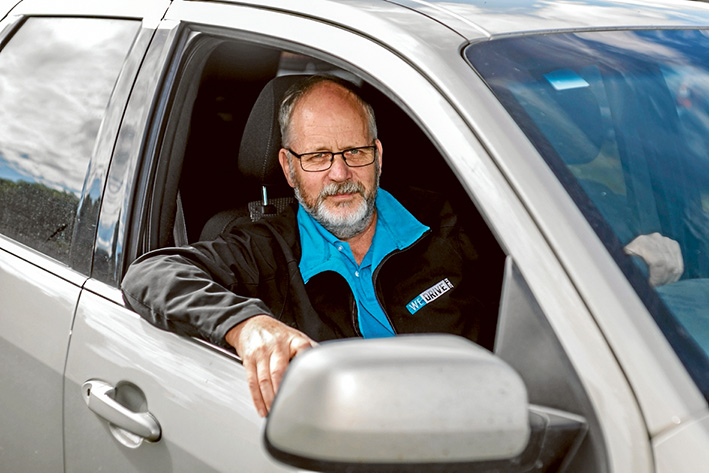
MOTORISTS who continue to drive while over 0.05 per cent are often certain they “won’t get caught” and can best avoid accidents by driving slowly.
They ignore the risks while maintaining that it is more convenient, cheaper and quicker to take their chances than seeking alternative transport.
Many blame alcohol for reducing their inhibitions and responsible decision-making.
But the possible dangers for them and other road users is high, and the costs – after getting pulled over – far outweigh any presumed savings.
These confronting findings emerged from a nation-wide online survey (Facebook, Twitter and Linked-In) by designated driver service WeDrive Australia, which is becoming increasingly popular on the Mornington Peninsula.
A follow up pilot study of 300 people has drawn positive feedback from clients who found the app-based service to be a useful alternative to driving – not only for locals but also for city visitors to the peninsula’s wineries and weddings.
CEO Yan Flageul designed the service after losing a friend to a drunken driver. It gives tipsy drivers the option of being driven home in their own car, without the inconvenience of having to retrieve it next morning – thus reducing their temptation to drink and drive.
The company now has around 200 drivers nationally and claims to be the first designated driver service to use phone apps. Its clients have direct access to an automated booking service, and can search for the first available team of drivers or book a trip in advance.
Somerville man Ian Birch has been a designated driver for just over 12 months and is delighted with how it supplements his income. He does four or five jobs on Fridays and Saturdays with a partner, and can make $200-$300 on a weekend, depending on the distances he drives.
After being contacted via the app the pair arrange to drive clients to their homes from hotels, parties, and a range of functions in their own cars, with the partner following in his own car.
Fares start at $30 for 5km for a driving team. A typical fare of 20 km would be $90 – with clients secure in the knowledge that their cars will be safely parked in the driveways next morning.
Clients pay by credit card, similar to Uber, and the drivers carry no cash.
“It’s surprising how many fares are under 10 kilometres,” Mr Birch said.
Adaptability is the key, with many fancy European cars having indicators and wipers on the “wrong” side, as well as manual gear boxes.
“It’s often a challenge talking to the clients as well as driving their cars home at the same time,” he said.
“You can go from a late model BMW to a 14-year-old Honda CRV in one night; anything might pop up.”
Clients may ask to be driven anywhere in Melbourne, as well as all over the peninsula. “One good job was to Torquay driving a beautiful old Jag, and another is for one of our regulars, who we drive all the way from Mt Eliza to Blackburn.”
Drinking at home is a no-no – and never while he is on the roster. “I don’t drink anyway,” he said. “But it would be impractical because you really have to concentrate.
“Anyway, that’s the whole point of the service: it’s what we are against,” he said.
Clients often see the benefits of the service while being driven home. “I’ve driven through booze buses many times and, on one occasion, the car in front was pulled in while we were waved through.
“The client said, “That car would have been me.”
While some fares are irksome simply because alcohol is involved, others are a joy. “On one memorable job I drove four delightful young ladies around Yarra Valley wineries for eight hours and really enjoyed it.”
Another favourite fare was driving a busload of businessmen to the Buchan Cup and hobnobbing with guests in a stylish marquee. “It was a two-day trip and I didn’t have to pay for a thing,” Mr Birch said.
The associated costs WeDrive’s its fee and the co-driver pays for his own petrol.
“The money is good but the knowledge that you are doing a good turn is important, too,” Mr Birch said.
“One night I drove a mum and dad home with their three children in their own safety seats and they were very grateful and it felt good.”



